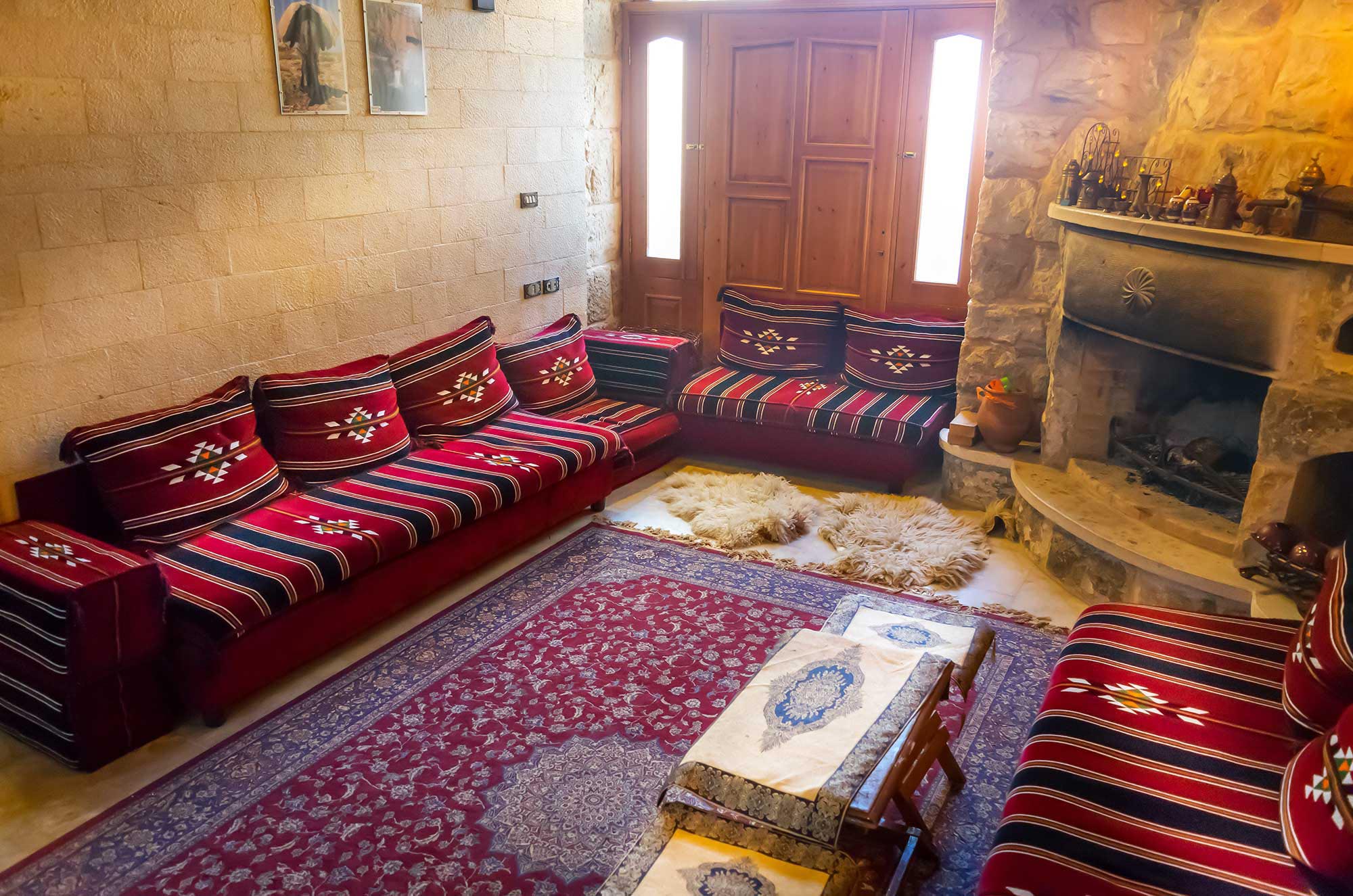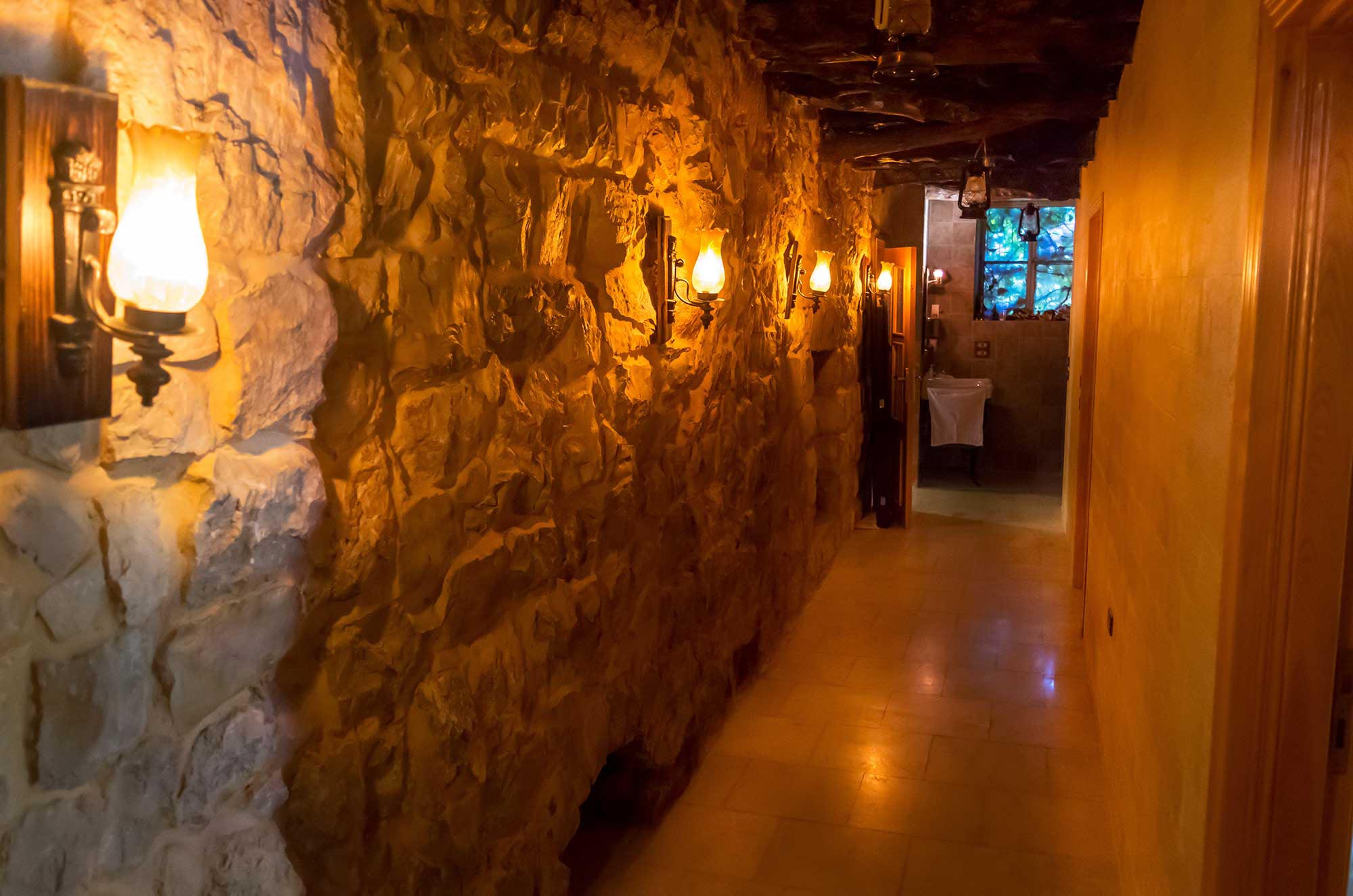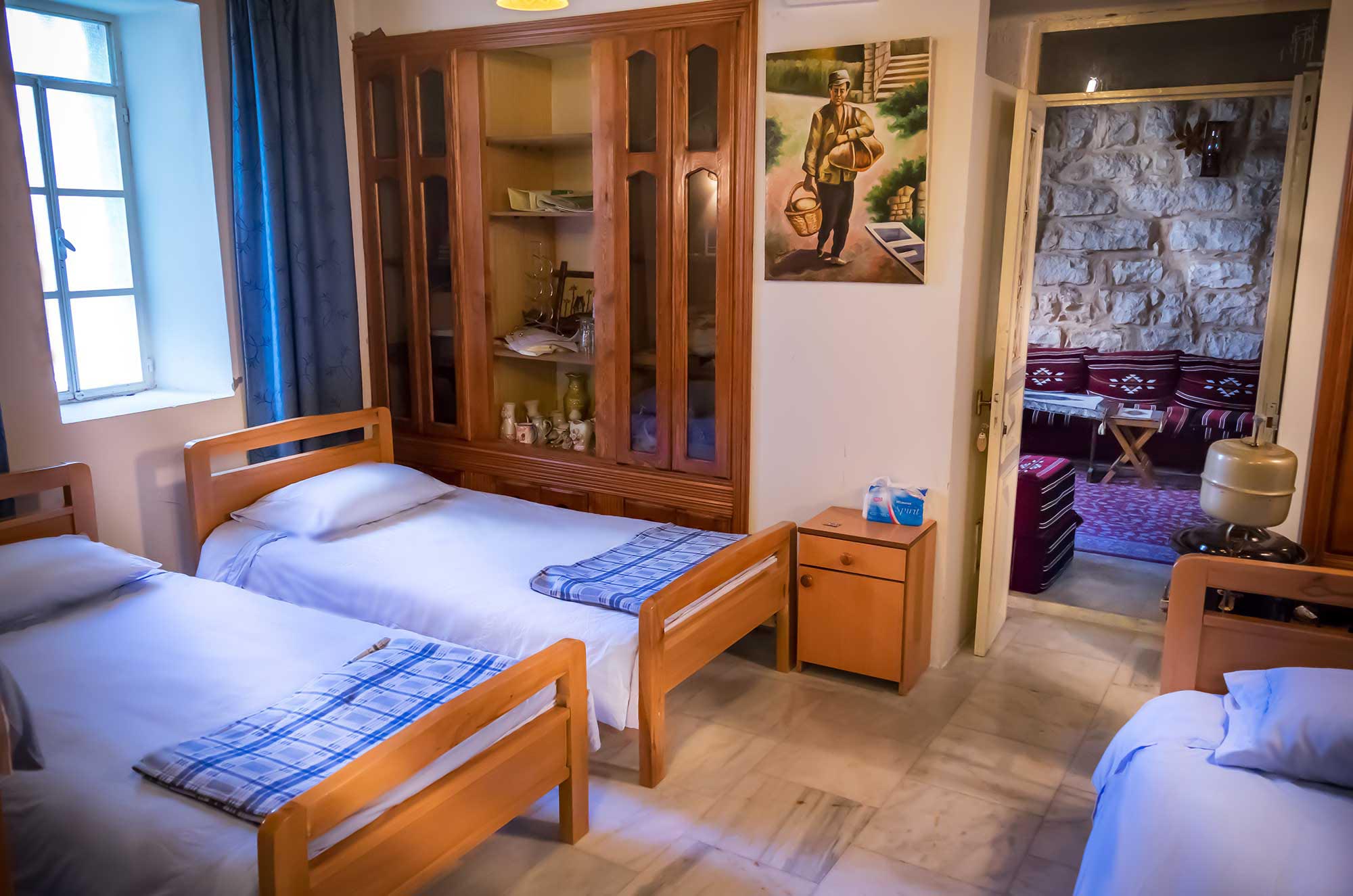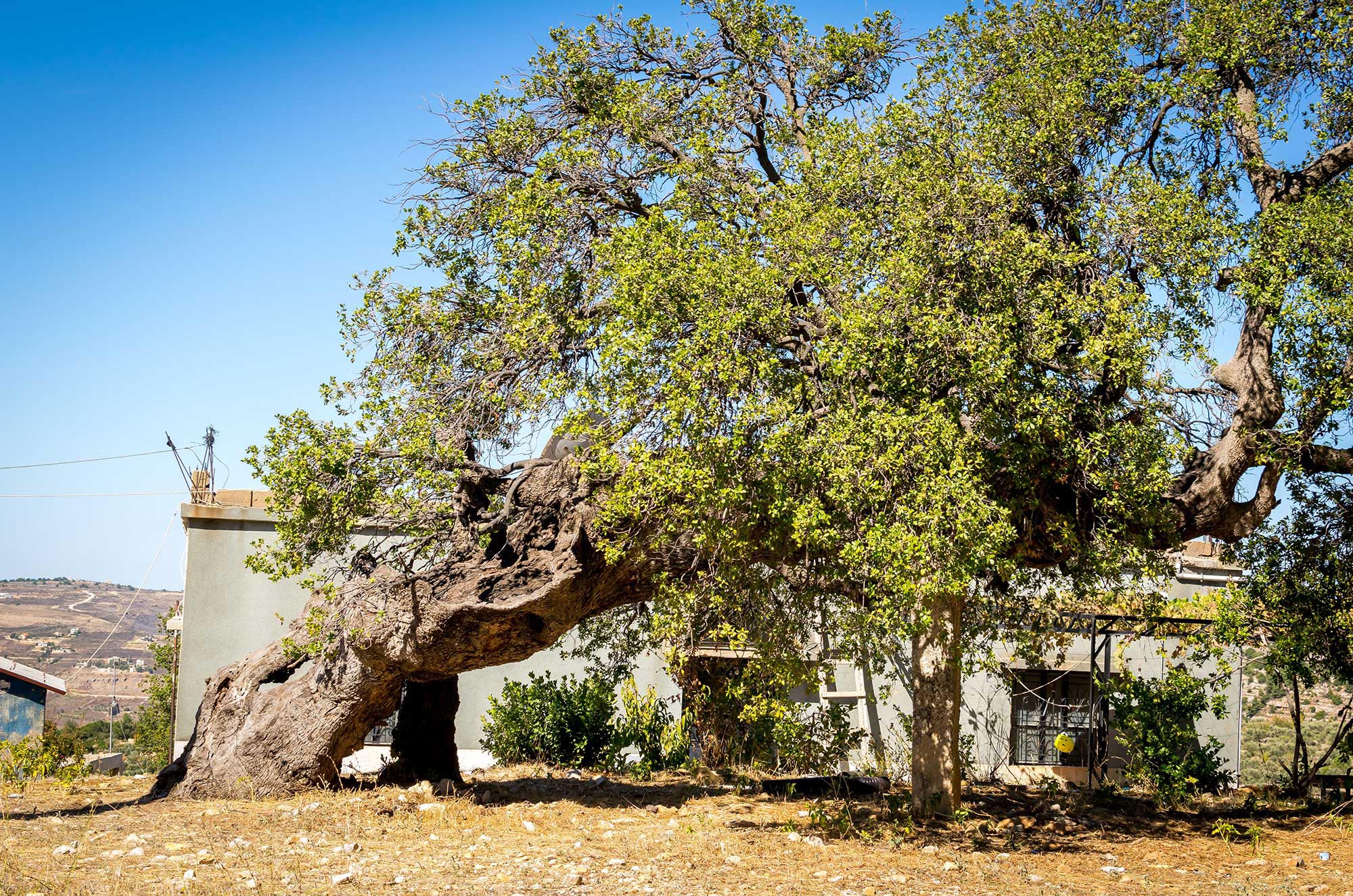May, 2015
Salim Al Ashkar, 43, was born and raised in Khreibeh in Chouf district of Mount Lebanon. He supervised architectural projects; building houses, paving roads.
He never really thought about his own home and how it would change his life.
“When I was 10, I used to urge my dad to modernize our house,” he explains, “I wanted to get rid of the arches, the yellowed stone walls, every old display and the “diwan,” the traditional Arab living room. I never looked at our 250-year-old house as a cultural treasure.”
In 2005, his views about his home and his life took a dramatic turn when a tourism expert visited the Nature Cedars Reserve in Lebanon near Salim’s home and then stopped by to see Salim. He persuaded Salim that his home was well-designed for a guesthouse to host visitors to the nearby cedars.


My mother took over the cooking and I renovated the house, added beds and restored the kitchen.


“My parents, friends and neighbors all loved the idea and supported me from day one.” He smiles as he remembers the early days of getting the guesthouse ready, “My mother took over the cooking and I start renovating the house, adding beds and restoring the kitchen.” But Salim insists he took care to preserve every aspect of its traditional beauty.
Salim slowly developed his business and earned a good reputation in the field of hospitality. Visitors from across Lebanon started coming to stay and so did diplomats and staff from foreign embassies, international tourists, students and hikers. Al Ashkar guesthouse has become quite a popular destination for visitors to spend a night or two, enjoy the garden and a traditional meal cooked by his mother, who still runs the kitchen. He can accommodate as many as 20 guests at a time. Most like to stay in the guesthouse bedrooms, but Salim says some prefer to pitch a tent or a sleeping bag in the garden.
DHIAFEE Association Helps Salim Advance in Rural Tourism
“Hospitality is an art in itself, you are born with it but you still need to hone your skills and knowledge so this is what I have done,” explains Salim. During the last decade he took training classes, workshops and attended conferences. “Some of that special training was organized by Anera, where I learned important tips about security measures, food safety, sanitation and management,” he adds.
Salim is passionate about conservation and rural tourism in Lebanon. He has established a wide network of loyal partners, including staff from the Italian and Spanish embassies, board members of the Cedars Nature Reserve, members of the Lebanese Mountain Trail Hikers, and school principals. His guesthouse is part the DHIAFEE Association, a rural tourism network established by Anera to create opportunities for economic development in Lebanon.
“The moment we opened the guesthouse it was a huge success, but in the summer of 2006, the war on Lebanon erupted and tourists canceled their trips,” Salim shakes his head and sighs, “It was a disaster. But then I told myself, it is a war and it will end so we need to persevere and better days will come.”




In the summer of 2006, the war on Lebanon erupted and tourists canceled their trips. It was a disaster. But then I told myself, it is a war and it will end so we need to persevere and better days will come.
Salim’s patience and determination paid off. The next summer more visitors came up to see the cedars and enjoy the beauty of northern Lebanon. His business started to grow and continues to flourish today. Salim is even expanding, building a second floor to welcome more visitors. And, he is continuing to participate in the capacity-building training sessions to hone his skills as a full-time guesthouse owner.
“Through these years of experience I have learned that success comes from taking risks and even failing sometimes but, most important, it is the dream that keeps me going,” concludes Salim with a smile.


What is the DHIAFEE Program?
With USAID funding, Anera implemented the DHIAFEE program from 2005 to 2008. The funding has been renewed to upgrade the network across Lebanon. DHIAFEE in Arabic means hospitality. It is also an acronym describing the mission of the program: Developing the Hospitality Industry’s Abilities-Fostering Economic Expansion.
Learn more about Anera’s DHIAFEE program or view all the guesthouses at www.dhiafeeprogram.org.




